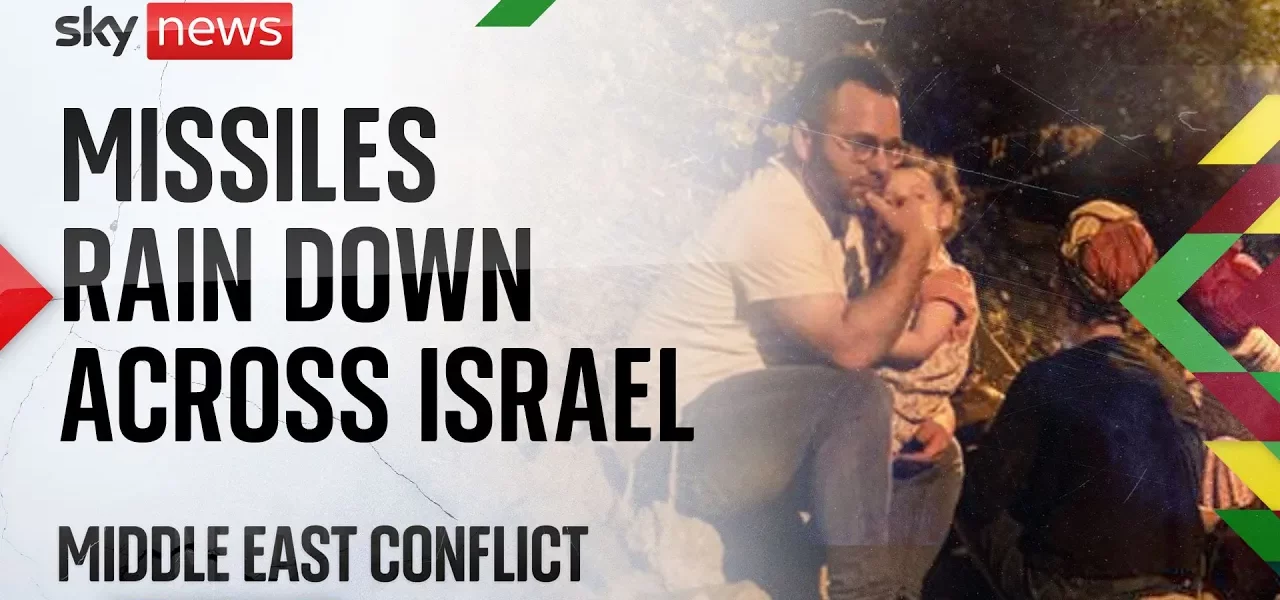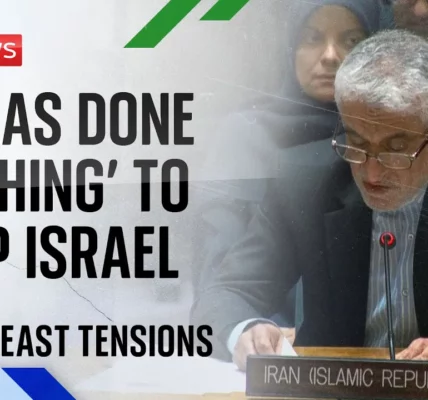Iran Prepares to Launch Ballistic Missiles at Israel: A Comprehensive Overview

In a significant escalation of tensions, Iran has prepared to launch ballistic missiles at Israel, leading to widespread alarm and military responses across the region. This article explores the events leading to this attack, the immediate repercussions, and the broader implications for security in the Middle East.
Introduction
The recent missile attacks from Iran towards Israel represent a critical moment in Middle Eastern geopolitics. With a barrage of missiles raining down on Israeli cities, the situation has escalated from mere threats to immediate military action. The attack has been characterized by its intensity and the number of missiles launched, indicating a well-coordinated effort aimed at destabilizing the region. This article delves into the details of the attacks, the responses from Israel, and the potential ramifications for future relations in the area.
Details of the Attack
On the night of the attack, the Israeli military reported a significant influx of missiles targeting various locations, including Tel Aviv. The warning regarding the missile launches came just hours before they commenced, highlighting the urgency and seriousness of the threat.
Missile Interceptions and Civilian Response
As the night unfolded, a constant stream of interceptions filled the sky, demonstrating the effectiveness of Israel’s defense systems. Civilians were seen taking shelter as alarms blared across the country. Here are some key aspects of the civilian response:
- Cars halted by the roadside as individuals sought safety.
- Many residents were instructed to retreat to safe rooms, reflecting the severity of the situation.
- Sirens echoed throughout central Israel, emphasizing the urgency of the threat.
Military Strategy and Operations
The Israeli security cabinet convened in an underground bunker, indicating a strategic response to the crisis. The military’s statement emphasized a dual approach:
- Defensive measures to protect civilians.
- Offensive operations to retaliate against the aggressors.
Israeli officials vowed a strong response, asserting their determination to defend the nation and its citizens from further attacks.
Impact of the Attacks
The missile strikes had immediate and grave implications, particularly in southern Israel. The IDF reported attacks near the Netim airbase and various other locations:
Casualties and Damage
While the missile barrage was extensive, reports indicated that no Israeli casualties occurred directly from the missiles. However, the situation in Gaza was markedly different:
- A Palestinian individual was reported dead due to falling debris near Jericho.
- In Gadera, south of Tel Aviv, a school was struck, leaving large craters but fortunately no injuries.
Reactions from Gaza and Hezbollah
As the missiles rained down, reactions from Gaza were starkly different. Palestinians were seen cheering, indicating a complex response to the conflict. Furthermore, Hezbollah’s involvement added another layer of complexity:
- Hezbollah fired long-range missiles into Israel, with one landing near a main highway.
- Several injuries were reported due to these attacks, showcasing Hezbollah’s continued military capabilities.
Political Implications and Future Outlook
The recent escalation has prompted significant political responses. Israeli Prime Minister Benjamin Netanyahu addressed the nation, warning of difficult days ahead and labeling Iran’s actions as a grave mistake. This section examines the political landscape moving forward:
International Responses
Global reactions to the conflict are crucial. Countries around the world are closely monitoring the situation:
- Calls for de-escalation have surfaced from various international leaders.
- Potential sanctions against Iran may be considered in response to its aggressive actions.
Long-term Stability in the Region
Experts warn that the current conflict could spiral into broader hostilities. The historical context of Iranian-Israeli tensions suggests that:
- Increased military engagements could become more frequent.
- Regional allies may be drawn into the conflict, complicating the geopolitical landscape.
Conclusion
The missile attack from Iran marks a significant escalation in the ongoing conflict in the Middle East. As Israel braces for potential retaliations and further attacks, the situation remains fluid and volatile. Understanding the implications of these events is crucial for grasping the broader geopolitical landscape of the region. As tensions continue to rise, it is imperative for the international community to engage in dialogue aimed at de-escalation and peace. Stay informed with updates on this evolving situation and explore related articles on our website to gain a deeper understanding of the implications of this conflict.
“`




